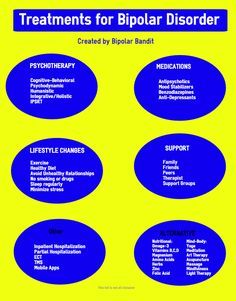Bipolar disorder is a mental health condition characterized by extreme mood swings, including episodes of mania and depression. These mood shifts can significantly impact a person's daily life, relationships, and overall well-being. While bipolar disorder cannot be cured, it can be effectively managed through various treatment strategies, including mood stabilization techniques.
Understanding Bipolar Disorder
Bipolar disorder, also known as manic-depressive illness, affects millions of individuals worldwide. It involves drastic changes in mood, energy levels, and activity levels. During manic episodes, individuals may experience heightened euphoria, increased energy, decreased need for sleep, irritability, and impulsive behavior. On the other hand, depressive episodes are characterized by extreme sadness, loss of interest in activities, low energy, difficulty concentrating, and thoughts of suicide.
The Role of Mood Stabilization
Mood stabilization is a critical component of bipolar disorder treatment. The primary goal of mood stabilization is to help individuals maintain balanced moods and prevent extreme swings between manic and depressive episodes. Effective mood stabilization can offer individuals with bipolar disorder a better quality of life, improved relationships, and increased ability to function in society.
Medication as Mood Stabilizers
One of the most common approaches to mood stabilization is the use of medication. Several types of medications can help manage bipolar symptoms and stabilize mood: Lithium: This is one of the most commonly prescribed mood stabilizers. It has been proven effective in controlling mania and preventing depressive episodes. Anticonvulsants: These medications, originally designed to treat seizures, also act as mood stabilizers in bipolar disorder. Examples include valproate, lamotrigine, and carbamazepine. Atypical antipsychotics: In addition to treating psychosis, certain antipsychotic medications like olanzapine, quetiapine, and risperidone can help stabilize mood during manic and depressive episodes.
Psychotherapy and Lifestyle Changes
In addition to medication, psychotherapy plays a crucial role in mood stabilization for individuals with bipolar disorder. Therapy can assist with managing stress, developing coping mechanisms, and improving interpersonal relationships. Some popular therapeutic approaches for bipolar disorder include Cognitive Behavioral Therapy (CBT), Dialectical Behavior Therapy (DBT), and Family-focused Therapy (FFT). Moreover, making positive lifestyle changes can significantly impact mood stability. This includes maintaining a regular sleep schedule, exercising regularly, eating a balanced diet, avoiding drugs and excessive alcohol consumption, and reducing stress levels.
Self-Help Strategies
Individuals with bipolar disorder can also adopt several self-help strategies to complement professional treatment: Mood tracking: Keeping a mood journal or using smartphone apps can help individuals track their mood patterns, identify triggers, and understand their unique symptomatology. Support system: Building a strong support network of friends, family, and professionals can provide encouragement and assistance during difficult times. Stress management: Engaging in stress-reducing activities such as meditation, deep breathing exercises, and hobbies can help restore emotional balance and prevent mood episodes. Education and advocacy: Learning about bipolar disorder and becoming an advocate for mental health not only helps individuals better understand their condition but also reduces stigma and promotes understanding within society.
Conclusion
Bipolar disorder is a complex mental health condition that requires a multifaceted approach to treatment. Mood stabilization techniques, including medication, psychotherapy, lifestyle changes, and self-help strategies, can effectively manage symptoms, enhance quality of life, and promote stability for individuals with bipolar disorder. By combining various strategies and seeking support, those living with bipolar disorder can lead fulfilling and productive lives.
